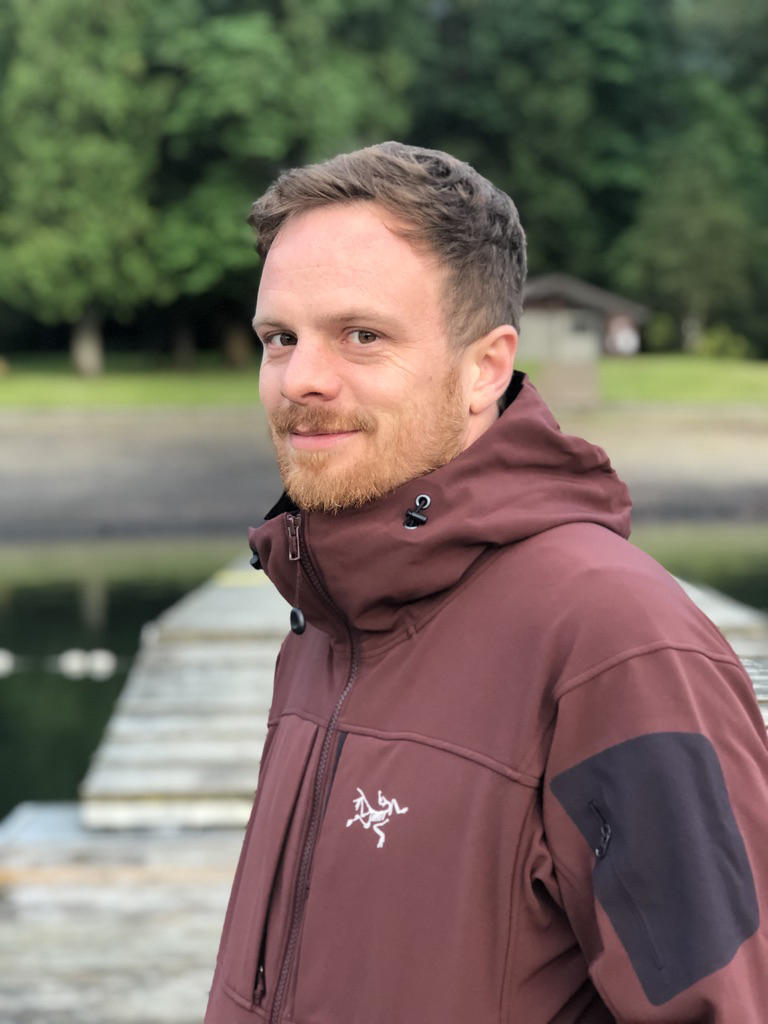From exclusion to inclusion: challenging the disability narrative
Donna McKinnon - 17 December 2020

As a child with a pronounced stutter, Joshua St. Pierre did not identify as disabled while growing up in the small and conservative Alberta community of Rocky Mountain House. A summer internship prior to entering grad school with the UAlberta-based Living Archives on Eugenics in Western Canada introduced St. Pierre to the field of disability studies — and everything changed.
As St. Pierre delved further into the subject, he began to locate his own experience within the much larger story of eugenics — the practice of surgical sterilization for those deemed “mental defectives”, in effect in Alberta from 1928 until 1972.
“Before finding this community of scholars and activists, I didn’t know there were alternatives to the dominant narrative of pathologization that justifies our exclusion from social and political life,” says St. Pierre.
Graduating with a PhD in Philosophy in 2019, St. Pierre has since produced a research program of such theoretical originality and relevance, its potential impact has been recognized nationally with a 2020 Tier 2 Canada Research Chair (CRC) in Critical Disability Studies.
St. Pierre’s research, to date, is among the very first within Critical Disability Studies (CDS) specifically to analyze speech disabilities. Furthermore, it has been central to the creation of the subfield of Dysfluency Studies, providing the theoretical structure for a growing interdisciplinary network of literary scholars, critical theorists, and clinicians.
With a new home in the Department of Political Science, St. Pierre says his background in philosophy provided the necessary depth and breath for his project, which draws several disciplines into conversation under the banner of CDS, especially: contemporary political theory, feminist philosophy, and communication studies.
An important person in this journey has been Danielle Peers, a fellow Canada Research Chair in Disability and Movement Cultures and an Assistant Professor, Faculty of Kinesiology, Sport, and Recreation.
“We met here in my first year of grad studies, and Danielle’s friendship has been instrumental in my growth as a scholar and activist,” says St. Pierre. “I’m beyond excited to get to continue this journey with them to develop CDS here at the U of A.”
Critical Disability Studies is by nature interdisciplinary, says St. Pierre, because it demonstrates that the widespread assumptions about ability/disability not only exclude disabled people from knowledge-production, but actually limit the quality and types of knowledge they can produce.
“Across Western history, political theory has assumed an able-bodied and idealized speaking subject that none of us can actually live up to,” he says. “Political theory that is attentive to the lived reality of human embodiment — that makes space for a wider range of political bodies — is not only emancipatory for disabled people but is more faithful to the world.”
According to Statistics Canada, 6.2 million people, or 22% of the population over the age of 15, experience disability, with that number increasing across a lifetime.
People with communication disabilities, such as stuttering, face significant and often hidden barriers, says St. Pierre, especially within societies like ours that highly value the flow of information.
“Disabled speech is usually thought of as a form of communication “breakdown” (e.g. misunderstandings, information overload, meaning that gets lost in translation) with responsibility born by the disabled person,” explains St. Pierre.
In contrast, his proposed CRC research seeks to hold the moment of breakdown open, addressing its political and ethical dimensions and providing a pathway to the reconceptualization of our responsibilities to one another across difference.
Over the course of the five-year renewable CRC, St. Pierre hopes to achieve three outcomes:
- The first, to make more time and space for disability within the event of communication, as well as to expand critical practices of listening and responsiveness;
- Second, to make critical interventions into clinical practices and popular discourses to “push back” against the pathologization and stigmatization of non-normative speech patterns, making space for more diverse ways of communicating and being with others;
- Finally, theorizing an ethic of communicative breakdown that will generate resources for accessible and hospitable communicative practices that are much needed within information societies.
St. Pierre says that while struggles at official levels like policy and litigation will always remain important for disability justice, barriers like shame that keep disabled people “in their place” and are created and reinforced in mundane and everyday ways must also be engaged.
“In the context of communication disability, it’s not enough to create more accessible practices of communication, or to map out the history of pathologizing difference — a history that continues to harm disabled people by treating the individual body rather than the social context as the problem to solve,” says St. Pierre. “Projects that call out dominant forms of power must additionally be leveraged against the intangible and often internalized forces that keep the shame of disability private and disabled people silent.”
The rich interdisciplinarity of CDS is one of its greatest strengths, says St. Pierre, but to grow the field requires scholars to be strategic in making institutional alliances across disciplines and faculties.
St. Pierre “couldn’t be more thrilled” to continue his work with Peers at the University of Alberta, as well as Katie Aubrecht, a sociologist at St. Francis Xavier University and Canada Research Chair in Health Equity & Social Justice; Carla Rice, CRC in Care, Gender and Relationships (University of Guelph); and Arseli Dokumaci, CRC in Critical Disability Studies and Media Technologies (Concordia University).
“The non-desirability of disability is so pervasive in our society (we unconsciously link disability with suffering), social change must always occur, in part, bottom-up by transforming what we desire,” says St.Pierre. “My work seeks to give resources to people with communication disabilities, collectively and individually, to transform the desirability of communication disability and its place in our shared world.”
Read the Folio announcement here.